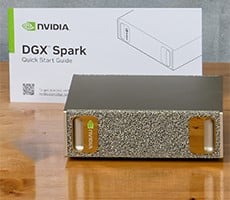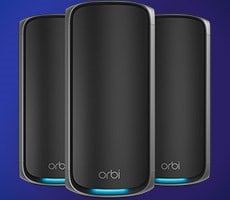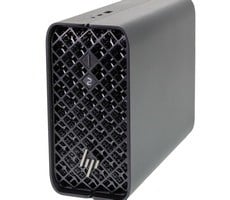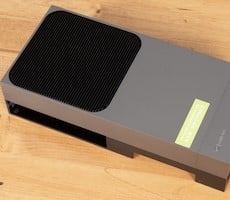ZOTAC ZBox HD-ID11 and Next Gen ION
Though when we start to consider the requirements of an HTPC, obviously features, functionality and performance have to be turned up a notch and that's what NVIDIA's next generation Ion graphics chip was built to address. Intel's low power Atom platform has garnered an inordinate share of design wins in the netbook and nettop market, but there's no denying even the dual core variant of Intel's most recent Pineview-based Atom chip still doesn't have the muscle to get the job done for higher-end HD video playback, never mind even light-duty gaming. However, with NVIDIA's Ion graphics core at play, Intel's Atom platform gets legs, as they say.
Today we're going to be looking at a product that incorporates not only Intel's new generation of dual-core Atom D510 processor but also NVIDIA's latest Ion graphics core into what could very well be a capable machine for a myriad of small form-factor computing requirements, including possibly taking residence in your living room entertainment center. The Zotac Zbox is here. It's a little over 7 inches square and a little over 1.5-inches thick but don't let its diminutive size fool you.
Be sure to check out our full analysis with benchmark details on the pages ahead.
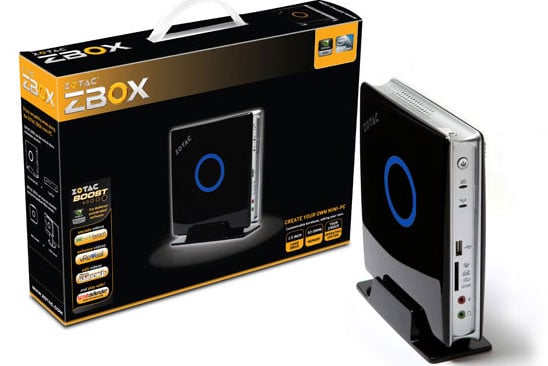
 |
|
| Processor Intel Atom D510 (Dual-Core, 1.66GHz) Motherboard Zotac Custom-built ION Operating System None Supplied - Windows 7 Home Premium Installed Memory None Supplied - 2GB DDR2-800 Installed Graphics NVIDIA Next Generation ION (GeForce GT218) CPU Cooling Heatsink/Fan Audio Onboard HD Hard Drive None Supplied - Seagate ST95032AS (500GB, 5400 RPM) Networking Realtek PCI-E Gigabit Ethernet Atheros AR9285 802.11n Wireless |
Case
1 USB 2.0 (Front) 1 USB 2.0 (Top)
Rear Panel I/O Ports 1 RJ-45 Gigabit Ethernet
Accessories
Warranty and Support
|
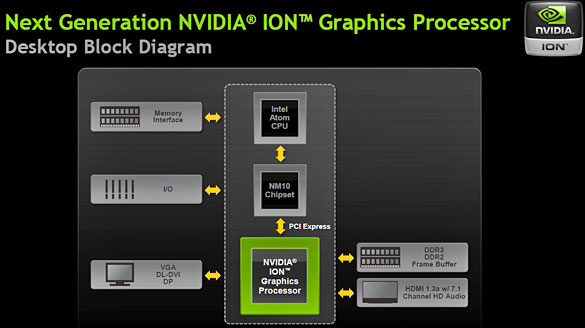
NVIDIA's Next-Gen Ion Graphics Processor, aka the GeForce 218GT


